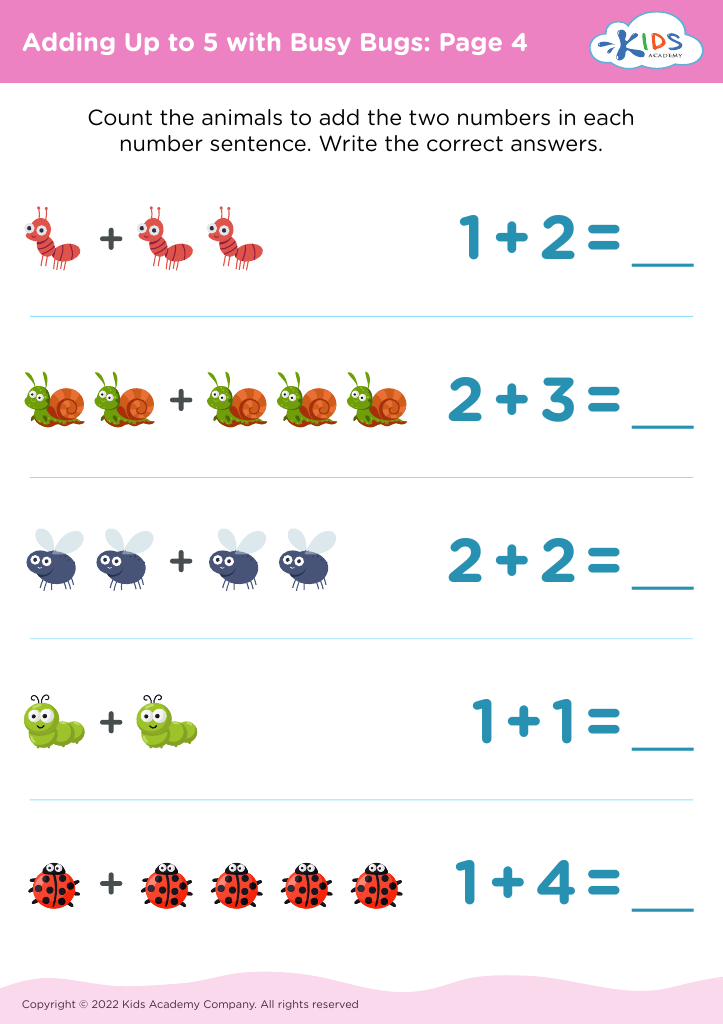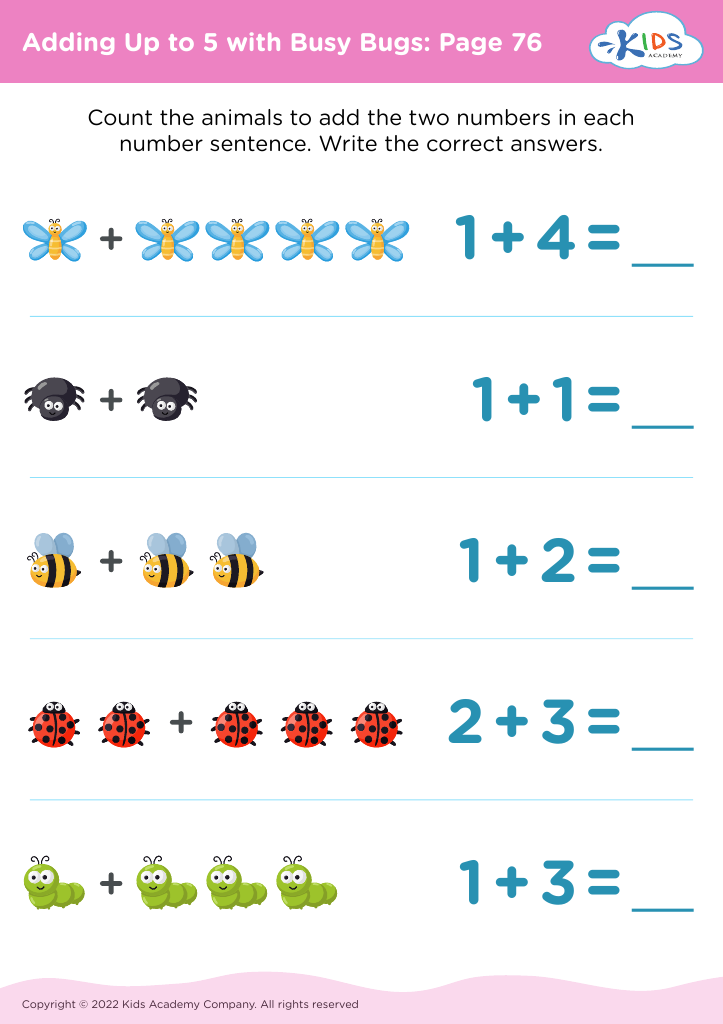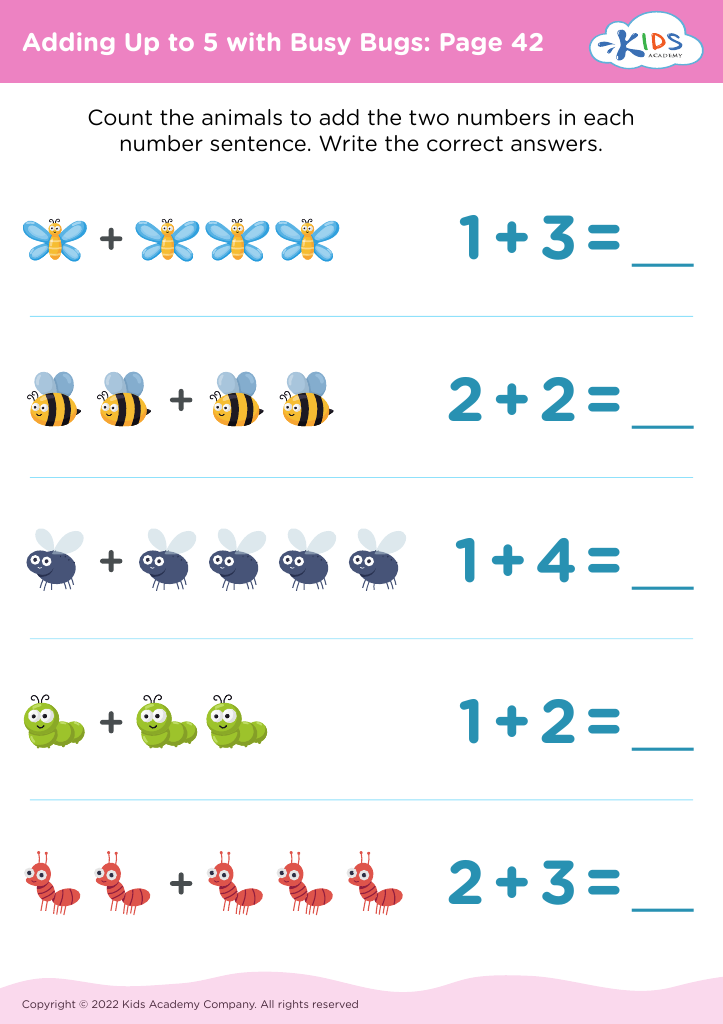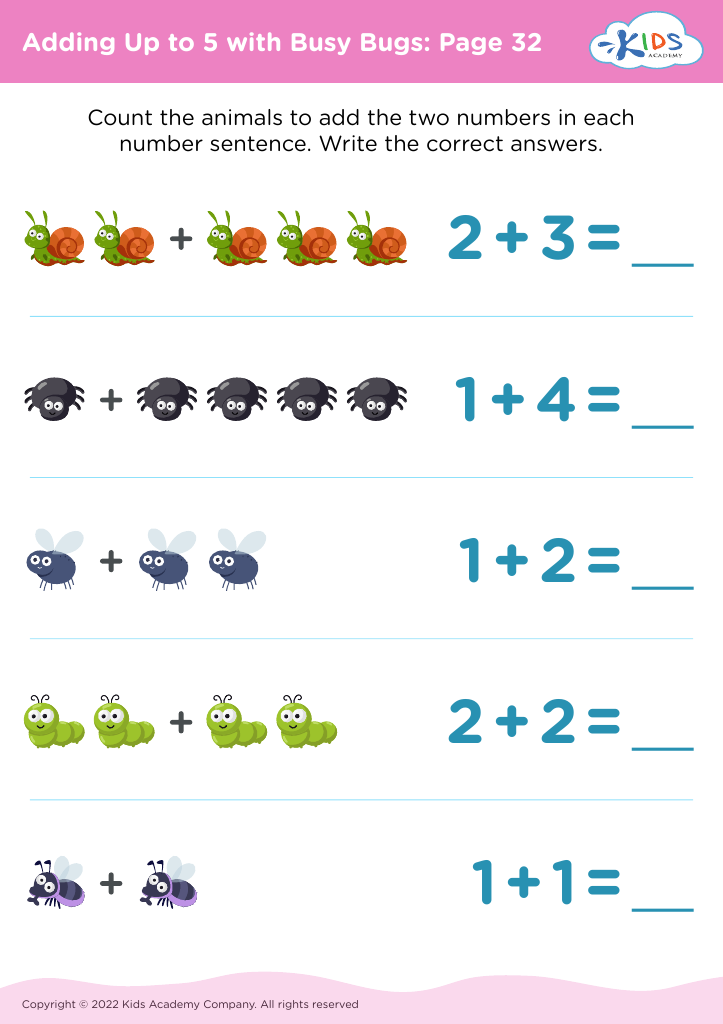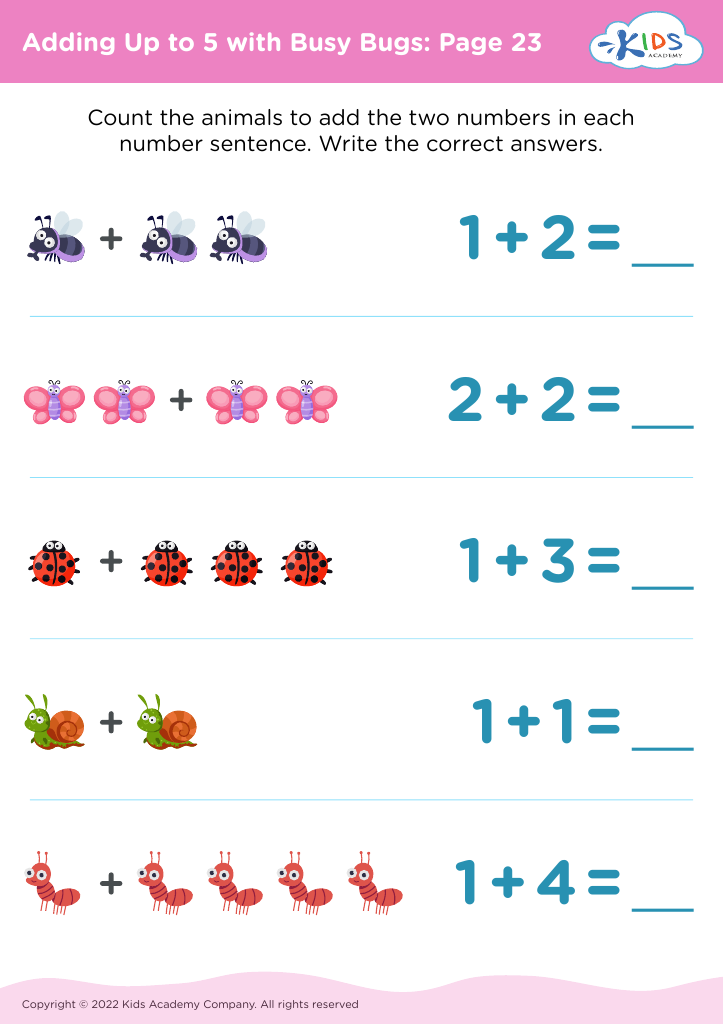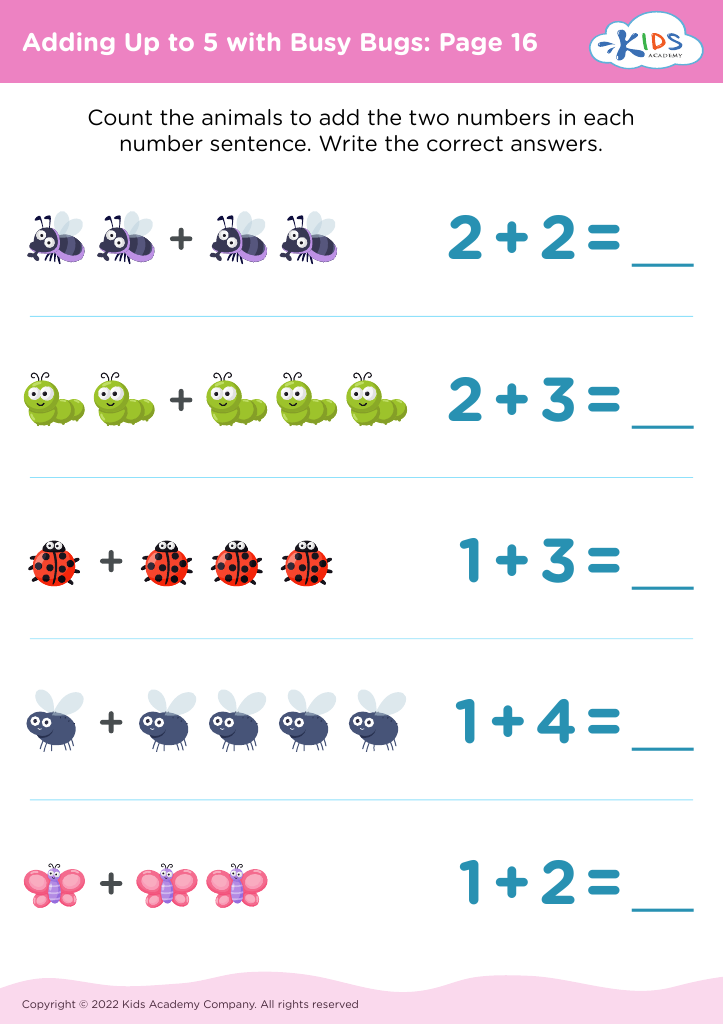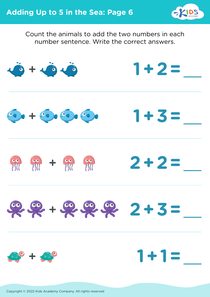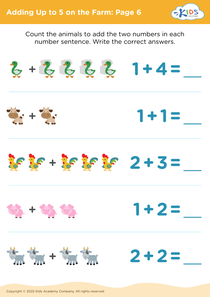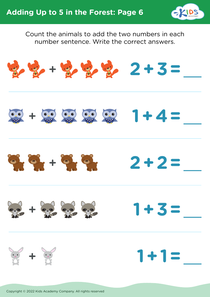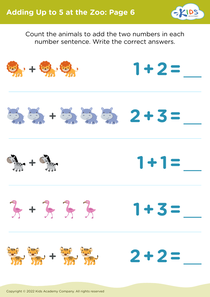Basic math concepts Adding with Busy Bugs Worksheets for Ages 3-9
6 filtered results
-
From - To
Introducing "Adding with Busy Bugs Worksheets for Ages 3-9," a fun and engaging way to build foundational math skills! Designed for young learners, these printable worksheets blend colorful bug-themed visuals with basic addition exercises to capture children's interest and make learning enjoyable. Tailored for kids aged 3-9, the activities help improve counting, number recognition, and early math problem-solving abilities. Perfect for home or classroom use, our Busy Bugs Worksheets support hands-on learning and ensure every child develops strong, essential math concepts with plenty of practice and encouragement. Start the journey to math proficiency with Busy Bugs today!
Understanding basic math concepts at an early age is crucial, and "Adding with Busy Bugs" stands out as a valuable tool for children aged 3-9. Here's why parents and teachers should care:
First, foundational math skills, like addition, are building blocks for more complex mathematical concepts later. "Adding with Busy Bugs" introduces these skills in an engaging and accessible way, making math less intimidating and more fun for young learners. The colorful and interactive nature of the program captures children’s attention, keeping them motivated to learn and practice.
Moreover, the game reinforces cognitive development. At this age, children's brains are highly receptive to new information. Games like "Adding with Busy Bugs" stimulate their cognitive processes, improving memory, problem-solving abilities, and logical thinking.
Additionally, early exposure to math promotes confidence. Children who master basic math concepts early are likely to feel more competent and confident in their abilities, fostering a positive attitude towards mathematics throughout their education.
Furthermore, parental and teacher involvement enhances learning. By integrating tools like "Adding with Busy Bugs" into the learning environment, adults can more effectively engage with children, offering support and celebrating progress, which encourages a love for learning.
In summary, "Adding with Busy Bugs" offers a delightful, effective way to nurture essential math skills and cognitive development in young children, creating a strong foundation for future academic success.

